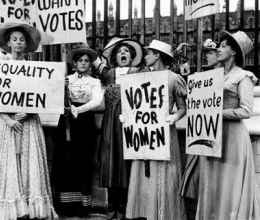Women balancing work and family know that gender discrimination is more subtle than it was just decades ago. Women are unlikely to be told by a prospective employer "we don't hire women," like Sandra Day O'Connor was when more than forty law firms would not give her an interview following her 1950 graduation from Stanford Law School. However, women who seek accommodations from an employer for pregnancy or breastfeeding are often denied or challenged on those requests.
Too often, the lack of legal protections under the law mean that women who are pregnant or returning to work after giving birth must make a difficult or impossible choice about continued employment or the health and well-being of themselves and their child.
Two bills, LD 777 and LD 830, would make minor changes to Maine law that would have a major positive impact on the lives of working mothers and their families. Yesterday, the ACLU of Maine testified in favor of these bills to protect the rights of pregnant workers and women who are breastfeeding. In our testimony, I spoke about the lack of legal remedies in the law, the firsthand complaints we have heard from women, and the ACLU's advocacy across the country in court to defend the rights of mothers.
The Judiciary Committee also heard testimony about a woman who was forced by her employer to use a Port-a-potty to express breast milk. They heard testimony about another Maine woman who developed sciatica during her pregnancy, but her employer, a big-box retailer, refused to allow her a stool at work until she brought in a note from her doctor, which the employer required her to update every six weeks.
How would LD 777 and LD 830 fix these problems? LD 777 updates Maine law to protect women who breastfeed under the Maine Human Rights Act. The bill language proposes the following:
"It is unlawful employment discrimination in violation of this Act, except where based on a bona fide occupational qualification, for an employer to fail to provide to an employee with a nursing child the accommodations required under Title 26, section 604."
LD 830 is also very simple. It would require employers to make a "reasonable accommodation" for pregnant women during her pregnancy in the same way that they would do for any other worker with a disability.
Unfortunately, opposition to these bills from the Maine Chamber of Commerce, the Maine Restaurant Association, and UNUM was fierce. The three men who testified against the bills called them "unnecessary." This was not entirely surprising. The United States Chamber of Commerce opposed amending the Civil Rights Act to ban discrimination against pregnant women back in 1977. But it's 2013. It's time to get with the times. A majority of Maine women and women across the country are working and *gasp* having families too. The law should protect all women and all women's choices.
The ACLU of Maine is working with our partners at the Coalition for Maine Women and Maine Women's Lobby to advocate for passage of these bills. We were joined at yesterday's hearing by groups like Maine Right to Life and the Roman Catholic Diocese of Maine. We could use your help too!
Do you have a personal experience or story of discrimination while pregnant or breastfeeding? State legislators on the Judiciary Committee need to hear from you! You can send an email to the entire Judiciary Committee by contacting the committee clerk, Susan Pinette, at [email protected]. Note that all communications with the state legislature are public documents, so you should only include details of your story that you feel comfortable being shared with the public.
Even if you don't have a personal experience of discrimination, you can express your support for an update to Maine's laws to protect pregnant workers and women who breastfeed by contacting your legislators. Click here to find your legislator and reach out to them today!
Defending Pregnant Women and Mothers
Related Issues
Related content

ACLU, ACLU of Maine, and National Women’s Law Center File Amicus...
September 29, 2022We support an ERA for Maine
March 7, 2019
Celebrate Women’s Suffrage, but Don't Whitewash the Movement's Racism
August 24, 2018Week in Review: Family detentions, Amazon, Asylum, and Fair Housing
June 18, 2018Week in Review: Anthem Protests, Banned Books, Data Collection, and...
September 29, 2017Broad Coalition Will Oppose “Fetal Personhood” Bill
May 16, 2017Two Maine Bills Would Make it Harder to Vote
February 22, 2017
Broad Coalition of Advocates Will Oppose Bills that Make it Harder...
February 14, 2017

